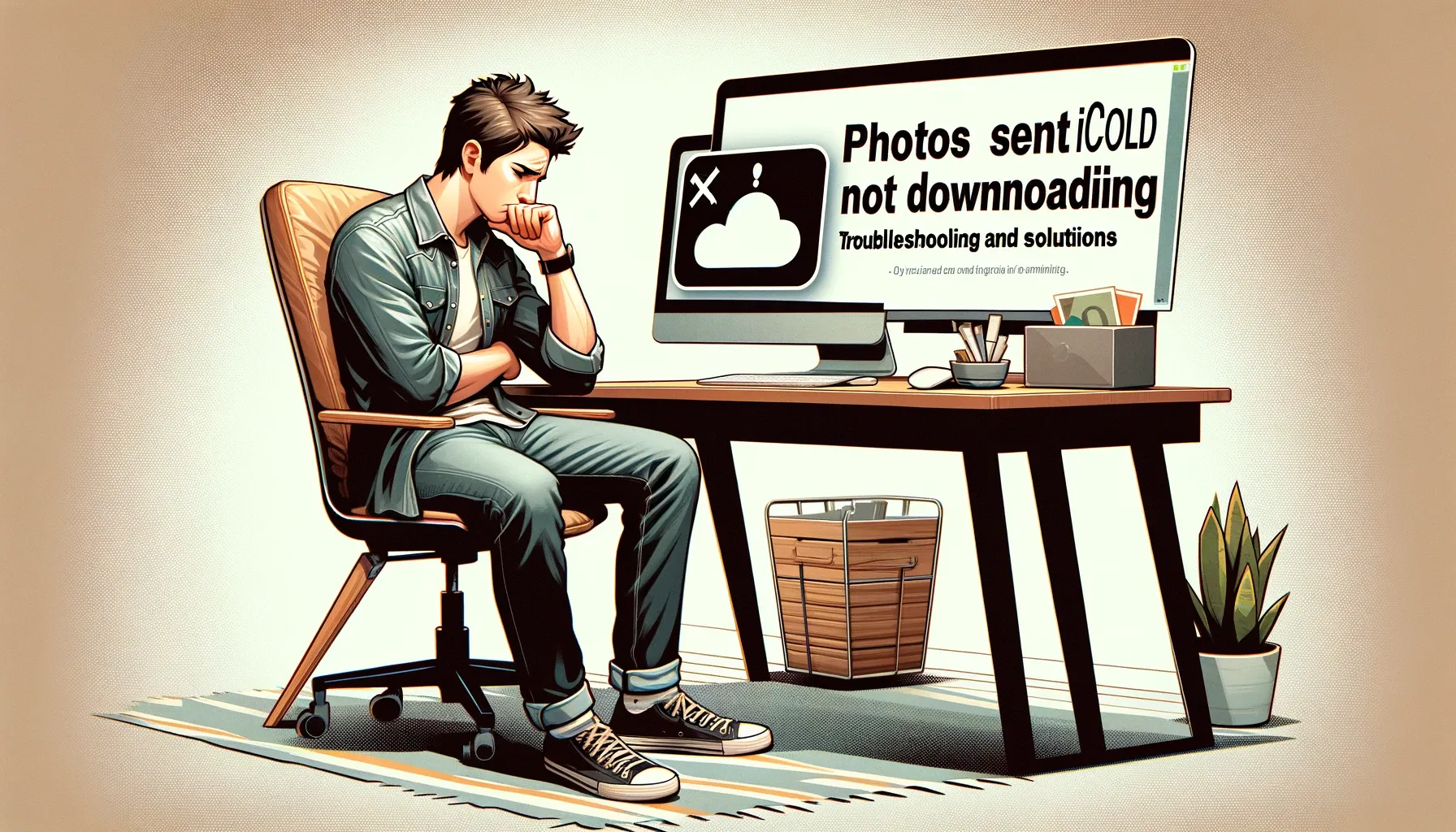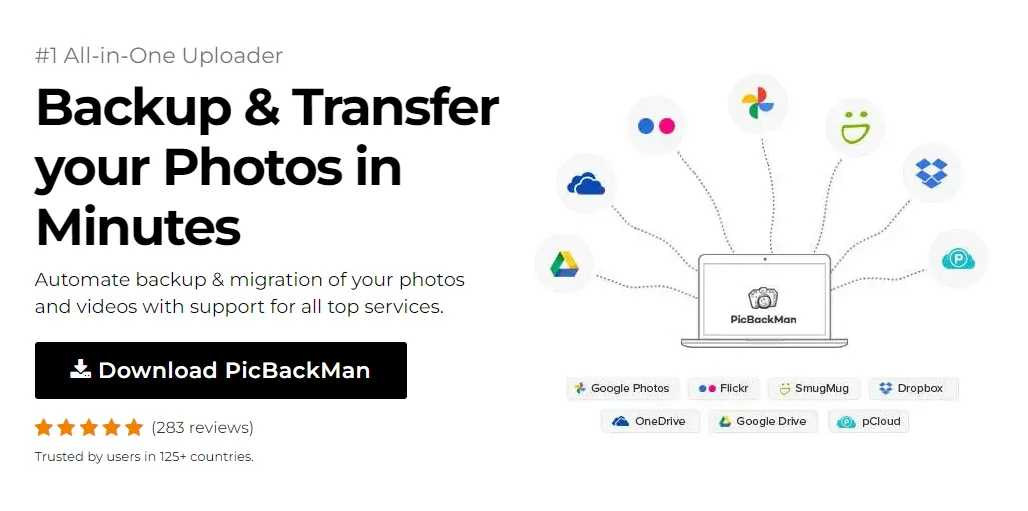
Why is it the #1 bulk uploader?
- Insanely fast!
- Maintains folder structure.
- 100% automated upload.
- Supports RAW files.
- Privacy default.
How can you get started?
Download PicBackMan and start free, then upgrade to annual or lifetime plan as per your needs. Join 100,000+ users who trust PicBackMan for keeping their precious memories safe in multiple online accounts.
“Your pictures are scattered. PicBackMan helps you bring order to your digital memories.”
Photos Sent via iCloud Not Downloading: Troubleshooting and Solutions


In the digital age, our cherished memories are often captured and stored in the form of photos. With the convenience of iCloud, Apple's cloud storage service, we can effortlessly store and share these precious moments across our devices. However, what happens when those photos sent via iCloud are not downloading as expected? This article delves into the common issues surrounding this predicament and offers practical solutions to ensure that your photos are readily accessible.
Understanding the Dilemma: Why Are Photos Sent via iCloud Not Downloading?
Before we dive into solutions, it's essential to comprehend the root causes of this issue. Several factors can lead to photos not downloading from iCloud, and here are some common culprits:
-
Network Connectivity Problems: A weak or unstable internet connection can disrupt the downloading process.
-
Insufficient iCloud Storage: If your iCloud storage is full or near capacity, it can hinder the download of new photos.
-
Device-Specific Issues: Sometimes, the problem lies within the device itself. Outdated software or configuration errors can be responsible.
-
iCloud Sync Issues: Occasionally, there may be syncing problems between your iCloud account and your device.
-
Large File Sizes: Extremely large photo or video files may struggle to download if your internet speed is limited.
-
Server Outages: iCloud services can experience outages or maintenance periods, causing temporary download disruptions.
-
Account Issues: If there are problems with your Apple ID or iCloud account, it can impede the download process.
Now, let's explore each of these issues in more detail and provide solutions.
Troubleshooting: How to Resolve the iCloud Photo Downloading Issue
1. Network Connectivity Problems
Symptoms: You may experience slow or interrupted photo downloads when your internet connection is unreliable.
Solutions:
-
Check Your Wi-Fi: Ensure that you are connected to a stable Wi-Fi network with a strong signal.
-
Restart Router: Sometimes, a quick restart of your router can improve connectivity.
-
Use Cellular Data (if applicable): If Wi-Fi isn't working correctly, you can enable cellular data for iCloud downloads (be mindful of data limits).
2. Insufficient iCloud Storage
Symptoms: If your iCloud storage is full, you won't be able to download new photos.
Solutions:
-
Manage Your Storage: Delete unwanted photos and files or consider upgrading to a higher storage plan.
-
Optimize iPhone Storage: On your iOS device, enable "Optimize iPhone Storage" in Settings > Photos.
3. Device-Specific Issues
Symptoms: Outdated software or configuration errors can affect photo downloads.
Solutions:
-
Update iOS or macOS: Make sure your device is running the latest operating system version.
-
Check iCloud Settings: Verify that iCloud Photo Library is enabled in your device's settings.
Backup & Transfer your Photos in Minutes
Trusted by users in 125+ countries.
4. iCloud Sync Issues
Symptoms: Photos may not download due to sync issues between your iCloud account and your device.
Solutions:
-
Log Out and Log In: Sign out of your iCloud account on your device and then sign back in.
-
Restart iCloud Photos: In iCloud settings, turn off iCloud Photos and then turn it back on.
5. Large File Sizes
Symptoms: Extremely large photo or video files may take a long time to download.
Solutions:
-
Wait Patiently: Large files can take a while to download, especially on slower connections.
-
Compress Files: Consider compressing large files before uploading them to iCloud.
6. Server Outages
Symptoms: Temporary disruptions can occur due to iCloud server maintenance or outages.
Solutions:
-
Check iCloud Status: Visit Apple's System Status page to check if iCloud services are experiencing issues.
-
Wait for Resolution: If there's a server problem, the issue should resolve once Apple addresses it.
7. Account Issues
Symptoms: Problems with your Apple ID or iCloud account can hinder photo downloads.
Solutions:
-
Verify Account Details: Double-check your Apple ID and ensure it is correctly set up.
-
Contact Apple Support: If account issues persist, reach out to Apple Support for assistance.
By following these troubleshooting steps, you can often resolve the issue of photos sent via iCloud not downloading. However, if you continue to encounter problems, don't hesitate to seek professional help from Apple Support.
Quick Tip to ensure your videos never go missing
Videos are precious memories and all of us never want to ever lose them to hard disk crashes or missing drives. PicBackMan is the easiest and simplest way to keep your videos safely backed up in one or more online accounts. Simply Download PicBackMan (it's free!), register your account, connect to your online store and tell PicBackMan where your videos are - PicBackMan does the rest, automatically. It bulk uploads all videos and keeps looking for new ones and uploads those too. You don't have to ever touch it.
FAQs
Q: Can I access my iCloud photos from a web browser?
A: Yes, you can access your iCloud photos by logging into iCloud.com and selecting the "Photos" option.
Q: What should I do if my iCloud storage is full?
A: To free up space, delete unnecessary photos and files, or consider upgrading to a larger iCloud storage plan.
Q: Is there a limit to the number of photos I can store in iCloud?
A: The amount of storage available depends on your iCloud storage plan. iCloud offers various plans with different storage capacities.
Q: Can I download multiple photos at once from iCloud?
A: Yes, you can select multiple photos and download them in bulk from the Photos app on your iOS device or iCloud.com.
Q: Why do some photos take longer to download than others from iCloud?
A: Larger file sizes or slower internet connections can cause some photos to take longer to download than others.
Q: What should I do if my iCloud photos are not syncing across my devices?
A: Ensure that iCloud Photos is enabled on all your devices and that they are using the same Apple ID. If issues persist, try logging out and back in or restarting iCloud Photos.
Remember, troubleshooting issues with iCloud photo downloads may require some patience and persistence, but with the right steps, you can enjoy seamless access to your precious memories.
Conclusion
In the age of digital memories, the inability to download photos from iCloud can be frustrating. Whether it's due to network issues, storage constraints, device-specific problems, or server outages, there are solutions to overcome these challenges. Remember to stay patient and methodical in your approach when troubleshooting these issues.
With the right techniques and a bit of perseverance, you can ensure that your treasured photos are readily accessible and preserved for years to come.






